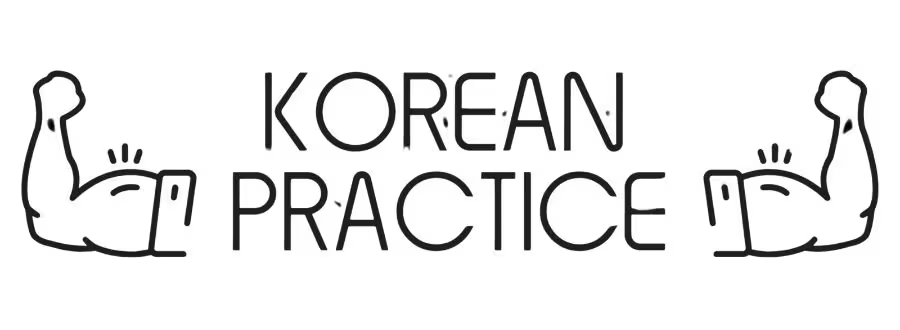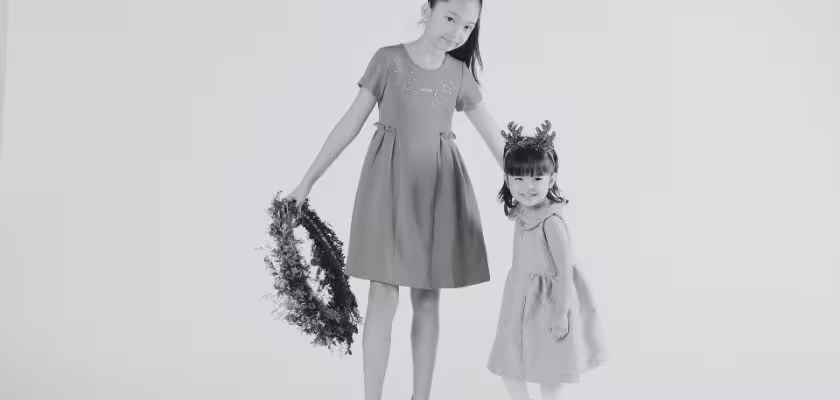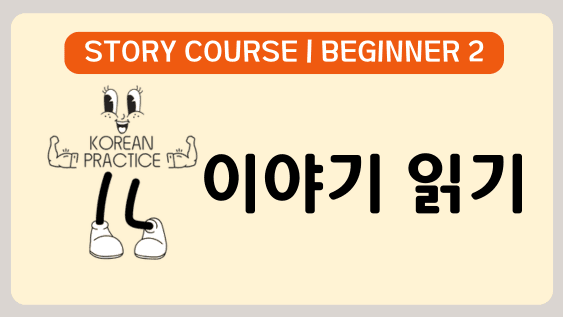Quick Answer: The word for younger sister in Korean language is 여동생 (yeo-dong-saeng)! Anyone can use this word, whether you’re a brother or sister. Simple, right?
About This Guide
Hey there! Learning how to call younger sister in Korean doesn’t have to be boring. In this guide, you’ll learn the most common way to say “younger sister” in Korean, plus some fun examples you can actually use. I’ll show you 4 real-life sentences that Koreans use every day!
What You’ll Learn:
- The main word for younger sister in Korean language (여동생)
- How to use little sister in Korean language in sentences
- Different ways to talk about your younger sister
- Fun examples with easy breakdowns
Follow These Steps
Step 1: Listen & Shadow
Follow the audio and speak along with the highlighted text.
Step 2: Check & Learn
Use the breakdowns to understand grammar, vocab, and meaning.
Step 3: Review Visually
Watch the reading practice video to reinforce the story.
Go Deeper
Get the full story and extra practice in the paid course.
STEP 1
Click the play button to try shadowing below.
Tip: For the best, distraction-free experience, switch to fullscreen mode while shadowing.
Table of Contents

STEP 2
What Does 여동생 Actually Mean?
Let me break down the word younger sister in Korean language for you:
여동생 = 여 + 동생
- 여 = female
- 동생 = younger sibling
So basically, 여동생 means “female younger sibling” or just “younger sister”!
Fun Fact: If you want to say “younger brother,” just change 여 to 남 and you get 남동생!
But here’s the cool part: most Koreans just say 동생 for any younger sibling. It’s easier and everyone understands from context!
Example Sentences:
Original Korean Sentence
어제 여동생이랑 같이 영화를 봤어요.
Pronunciation Guide
어제 (eo-je) 여동생이랑 (yeo-dong-saeng-i-rang) 가치 (ga-chi) 영화를 (yeong-hwa-reul) 봣써요 (bwat-sseo-yo).
Meaning and Context
어제 (yesterday) 여동생 (younger sister) 이랑 (with) 같이 (together) 영화 (movie) 를 (my object is a movie) 보 (to watch) 았 (past tense) 어요 (I’m telling you polite and friendly).
English Translation
I watched a movie with my younger sister yesterday.
Literal Translation
(I) watched movie together with younger sister yesterday.
✍️ Related: Teacher in Korean: The 5 Correct Ways to Address Teachers (Avoid These Common Mistakes!)
Example Sentences:
Original Korean Sentence
여동생이 정말 귀여워요.
Pronunciation Guide
여동생이 (yeo-dong-saeng-i) 정말 (jeong-mal) 귀여워요 (gwi-yeo-wo-yo).
Meaning and Context
여 (female) 동생 (younger sibling) 이 (my subject is my younger sister) 정말 (really) 귀엽 (to be cute) 어요 (is; I’m telling you polite and friendly).
English Translation
My younger sister is really cute.
Literal Translation
(My) younger sister is really cute.
✍️ Related: Blind Date in Korean: Learn the Word Sogaeting and Korean Dating Culture
Quick Tip: When Do You Use 여동생?
Use younger sister in Korean language (여동생) when:
- ✅ Talking ABOUT your sister to others
- ✅ Introducing your sister to someone new
- ✅ Writing about your sister
Don’t use it when:
- ❌ Talking directly TO your sister (just use her name!)
- ❌ In super casual family conversations
Example Sentences:
Original Korean Sentence
잘 잤어? 아침 먹자.
Pronunciation Guide
잘 (jal) 잣써 (jat-sseo)? 아침 (a-chim) 먹짜 (meok-jja).
Meaning and Context
잘 (well) 자 (to sleep) 았 (past tense) 어 (I’m asking you casually)? 아침 (breakfast) 먹 (to eat) 자 (let’s; in a casual way).
English Translation
Did you sleep well? Let’s have breakfast.
Literal Translation
Slept well? Let’s eat breakfast.
✍️ Related: Body Parts in Korean: A Comprehensive Guide
Example Sentences:
Original Korean Sentence
내 여동생과 함께 쇼핑하러 갔어요.
Pronunciation Guide
내 (nae) 여동생과 (yeo-dong-saeng-gwa) 함께 (ham-gge) 쇼핑하러 (syo-ping-ha-reo) 갓써요 (gat-sseo-yo).
Meaning and Context
내 (my) 여 (female) 동생 (younger sibling) 과 (with) 함께 (together) 쇼핑 (shopping) 하 (to do) 러 (in order to) 가 (to go) 았 (past tense) 어요 (I’m telling you polite and friendly).
English Translation
I went shopping with my younger sister.
Literal Translation
(I) went in order to do shopping together with my younger sister.
✍️ Related: How to Say Yes and No in Korean – 8 Easy Examples Explained
STEP 3
Watch this short story video to see Younger sister in action
Korean Sister Words Cheat Sheet
Here are all the Korean words for sister you should know:
For Younger Sister:
- 여동생 (yeo-dong-saeng) = younger sister in Korean language
- 동생 (dong-saeng) = younger sibling (shorter version)
For Older Sister (girls say this):
- 언니 (eon-ni) = older sister (said by girls)
For Older Sister (boys say this):
- 누나 (nu-na) = older sister (said by boys)
See? How to say younger sister in Korean is way easier than the older sister words because everyone uses the same word!
Try It Yourself!
Fill in the blanks with 여동생:
- 내 _____은 학생이에요. (My younger sister is a student.)
- _____이 선물을 줬어요. (My younger sister gave me a gift.)
- _____이랑 공원에 갔어요. (I went to the park with my younger sister.)
Answers: 1. 여동생 2. 여동생 3. 여동생
From My Original Story Style Breakdown™ — A New Way to Truly Understand Korean
This is just one sentence from a complete learning system you won’t find anywhere else — designed to help you understand Korean naturally, without getting lost in grammar rules. You can choose between Quick Learning for a fast overview, or Deep Learning for a step-by-step breakdown.
When you can truly understand Korean sentences this way, speaking becomes much easier.
🚀 Quick Learning

Original Korean Sentence
사자가 코끼리를 잡아요.
Pronunciation Guide
사자가 (sa-ja-ga) 코끼리를 (ko-ggi-ri-reul) 자바요 (ja-ba-yo).
English Translation
The lion catches the elephant.
Literal Translation
Lion catch elephant.
Quick Reference
사자가 (lion) 코끼리를 (elephant) 잡아요 (catch).
💡 Need more details? See “Deep Learning” below!
🔍 Deep Learning
Meaning and Context
사자 (lion)
→ The lion — the one taking action now in the story.
가 (subject marker)
→ Points out that the lion is doing the action.
코끼리 (elephant)
→ The one the action is done to.
를 (object marker)
→ Shows that the elephant is the object being caught.
잡 (to catch, grab, take)
→ The action — the lion catches or grabs the elephant.
아요 (polite ending)
→ I’m telling you this in a polite and friendly way.
Real-Life Usage
잡아요 is common when talking about catching or holding something.
Pattern Practice
1. 사자가 토끼를 잡아요.
2. 고양이가 쥐를 잡아요.
3. 아이가 공을 잡아요.
4. 강아지가 공을 잡았어요.
FAQs (What You Might Still Wonder About)
Can I just say “동생” instead of “여동생”?
Yes! In casual conversation, Koreans often omit 여 and simply say 동생, which means “younger sibling” and can refer to either a sister or brother.
Are there different words based on the speaker’s gender?
For younger sister, 여동생 is universal and doesn’t depend on the speaker’s gender. However, for older sister, women use 언니 (eonni) and men use 누나 (nuna).
How do I say “my younger sister” in a polite sentence?
A formal example: “저의 여동생은 대학교에 다니고 있어요.” (Jeoui yeodongsaeng-eun daehakgyo-e danigo isseoyo.) → “My younger sister is attending college.”
How do I refer to younger sisters in extended or in-law relationships?
Variations include: Step‑younger‑sister: 의붓동생 (uibutdongsaeng) Half‑younger‑sister: 이복동생 (ibokdongsaeng) Sister‑in‑law (husband’s brother’s wife or wife’s younger sister): terms differ depending on context, like 동서 or 처제.
Final words
Mastering family terms like younger sister in Korean language is a small but essential step in learning Korean. It helps you navigate relationships and conversations more naturally. Start incorporating these terms into your daily practice, and you’ll see improvements in your Korean language skills.
Understanding these nuances will not only help you speak better Korean but also connect more deeply with Korean culture. Keep practicing, and soon enough, you’ll be using these younger sister in Korean language as if they were your own!








